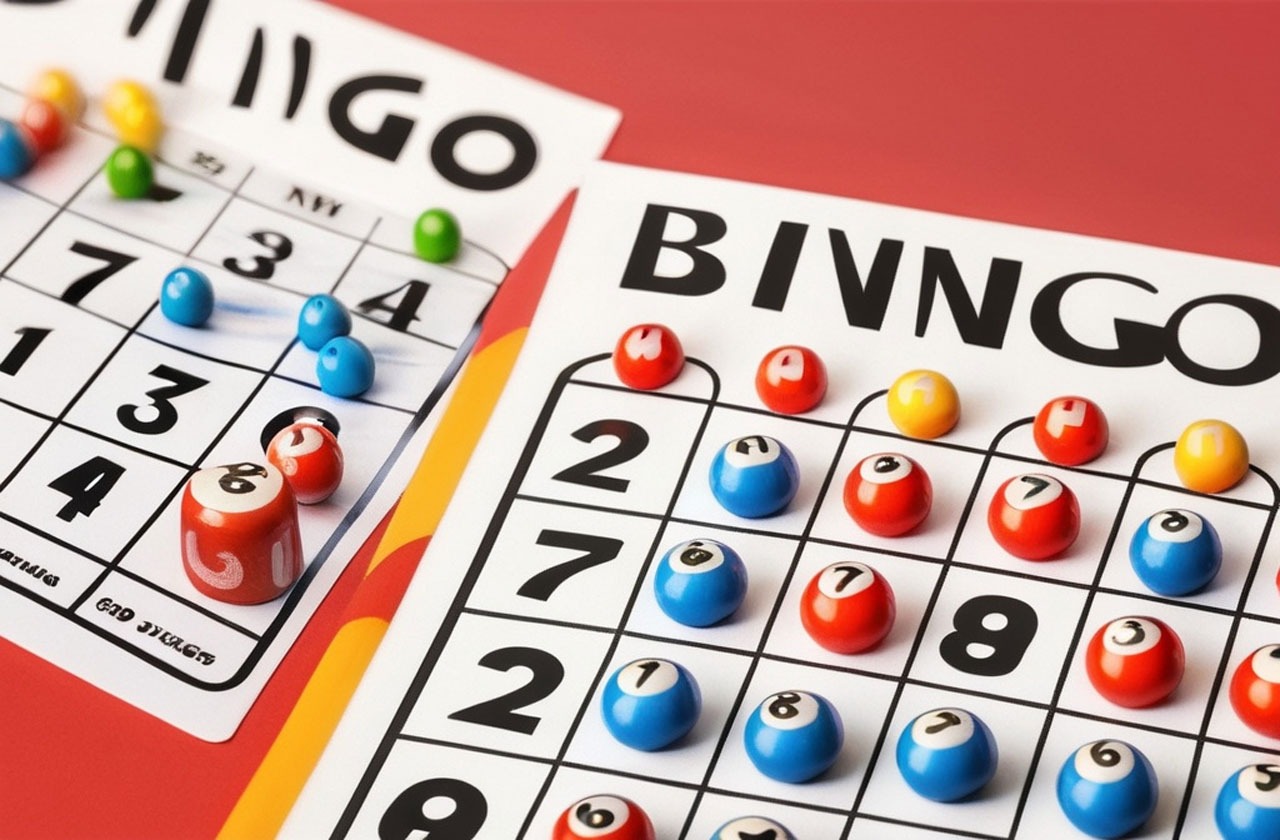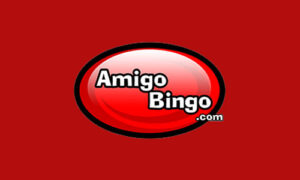One of the very distinct characteristics of bingo games is the use of bingo number nicknames. They add fun to any bingo proceedings, although, truth be told, they are not exactly the most necessary thing to know.
For one, even if you know nothing about these nicknames, you will still see the numbers called on the screen. And the callers still call the numbers as is, vis a vis the number nickname.
Still, it cannot be denied that these nicknames add some spice and some flavor to a card game that may seem to get monotonous after a while.
Even in online bingo, many programs and websites still use these bingo number nicknames. It’s as if these nicknames are now tradition. No bingo game is without these nicknames.These bingo nicknames are often dictated by culture and location.
While some of the bingo numbes remain the same in America and Europe, some other countries use other bingo number nicknames according to what their culture and history dictate.
For instance, one of the universal bingo number nicknames for the number one is Kelly’s eyes. This name is after Ned Kelly, a popular Australian gangster who is believed to only have one eye.
While Ned Kelly may be popular in the United Kingdom and Australia and is known in America, Ned Kelly is probably not a familiar figure in Asian countries, where bingo is also played. Likewise, these countries have their own pop culture histories, which often dictate bingo number nicknames.
However, some of the bingo number nicknames used in America and the United Kingdom are indeed universal and are the ones used in online bingo games.
Bingo number nicknames are usually classified into two: by sense and by rhyme. Nicknames in the first category are often references to popular historical figures and events, pop culture tidbits, and specific cultural items. Those classified by rhyme is simply that-the nickname rhymes with the number being called.
Then there are numbers that simply, directly pertain to the number (for instance, “unlucky for some” is a nickname for 13; this proves that bingo nicknames are often culturally-based because 13 is not unlucky for Japanese and Chinese people, for instance).
A popular example of a general bingo nickname for 16 is “never been kissed,” for obvious reasons. This is a general nickname because the “sweet sixteen” perception is true elsewhere.
Some nicknames, on the other hand, combine sense and rhyme. Gandhi’s breakfast is the nickname for the number 80 (obviously a call done only in the non-US bingo games).
This is a reference to Gandhi’s food abstinence because, some say, 80 rhymes with ate (8) and zero means nothing-therefore, he ate nothing. As for nicknames according to rhyme, heaven’s gate is an example – heaven’s gate rhymes with 78. Others pertain to the shape of the number.
One of the advantages of knowing these nicknames is that a player gets to declare “bingo” even before the number is even called through determining it through the nickname. Obviously, this is an advantage that more veteran players have against new bingo players.
The Basics of Bingo
Before we dive into the particulars of bingo number calling, let’s recap the essentials of the game itself. Each player receives a card filled with a random assortment of numbers ranging from 1 to 75 (or 1 to 90 in some variations). A caller randomly selects numbers, announces them, and players mark their cards accordingly. The first player to achieve a specific pattern – be it a straight line, full house, or any other formation – shouts “Bingo!” and wins the game.
The simplicity of bingo makes it accessible to people of all ages, but it’s the atmosphere created during the game that renders it so engaging. This is where bingo number calling and nicknames truly shine.
The Role of the Bingo Caller
The bingo caller plays a crucial part in the game atmosphere. They are responsible for announcing the numbers in a clear, engaging manner, which can influence the energy in the room. A lively and charismatic caller can turn a standard game into a memorable experience. Callers often introduce unique calling styles, incorporating humor, anecdotes, and the occasional pun to keep players entertained.
Bingo Number Nicknames
One of the most charming traditions in bingo is the use of nicknames for the numbers. Each number has a specific nickname that adds to the fun. These fun phrases often encourage camaraderie and laughter, forging social bonds among players. The origins of these nicknames are mixed; some derive from traditional sayings and culture, while others might arise spontaneously within specific playing communities.
Below are some of the most popular bingo numbers and their fun nicknames:
- 1 – “Kelly’s Eye”: This nickname is believed to originate from the Irish, possibly Andrew Kelly, who is associated with good luck.
- 2 – “One Little Duck”: The shape of the number 2 resembles a duck, hence this playful nickname.
- 3 – “Cup of Tea”: A popular reference to the British tradition of drinking tea, appealing to the nation’s love for this beverage.
- 4 – “Knock at the Door”: This nickname plays on the idea of someone knocking at the door.
- 5 – “Man Alive”: A fun affirmation of life and energy, this nickname adds liveliness to the number.
- 6 – “Tom Mix”: Named after the famous cowboy actor of the silent film era, these connections often leave players reminiscing about historical figures.
- 7 – “Lucky Seven”: A number often associated with luck in various games and cultures, making it a favorite in the bingo hall.
- 8 – “Garden Gate”: The shape of the number 8 resembles a garden gate, lending itself to this nickname.
- 9 – “Doctor’s Orders”: A nod to visiting the doctor for health, promoting wellbeing among the players.
- 10 – “Kelly’s Eye”: This is a classic recurring nickname that carries energy.
- 11 – “Legs Eleven”: This nickname plays on the shape of the numbers, making it memorable and fun.
- 12 – “One Dozen”: Familiar and straightforward, this nickname is widely recognized.
- 13 – “Unlucky for Some”: A reference to the superstitions surrounding the number 13, often seen as a bad omen.
- 14 – “Valentine’s Day”: This number is associated with love and affection, adding warmth to the game.
- 15 – “Baker’s Dozen”: Similarly, this references the tradition of bakers adding extra items to a dozen.
- 16 – “Sweet Sixteen”: Evokes the excitement of a young person’s birthday party.
- 17 – “Dancing Queen”: A nod to the classic ABBA song, appealing to fans of all ages.
- 18 – “Coming of Age”: Signifying maturity, this nickname resonates with many players celebrating significant life events.
- 19 – “Goodbye” +1: A playful take on the progression of age.
- 20 – “Two O’Clock”: Simply refers to the time displayed on a clock.
- 21 – “Key of the door”: Often associated with turning 21, symbolizing freedom and choice.
- 22 – “Two Little Ducks”: A playful and vivid image, fostering a sense of attachment to the game.
- 23 – “The Same Again”: Often represents repetition, sometimes leading to banter amongst players.
- 24 – “Two Dozen”: Capitalizes on accessible terms from the kitchen.
- 25 – “Quarter of a Century”: Familiar for representing a significant milestone.
- 26 – “Pick and Mix”: Encourages variety and choice, signifying a favorite among players.
- 27 – “Driving Heaven”: Sassy and carefree, this nickname is a favorite amongst younger players.
- 28 – “Overweight”: A humorous reference that resonates with struggles many players have experienced.
- 29 – “The Last Chance”: Perfect for the dramatic moments in a game where players are on the edge of winning.
- 30 – “Dirty Gertie”: An iconic and cheeky nickname that adds charm.
As the bingo game progresses, the creativity of the callers and players often lead to adaptations or twists on traditional nicknames. Players sometimes come up with new names that reflect local culture, politics, or popular trends, making the game feel personalized and inclusive.
The Social Aspect of Bingo
Bingo is not just about the numbers; it’s also about the connections fostered among players. The playful spirit of calling out numbers possesses a community-building essence. During a game, players share laughs, stories, and strategies, creating an atmosphere of camaraderie.
Many bingo nights hold a social significance, serving as fundraisers for local charities, churches, or community centers. The blending of gameplay with social causes can create a rich and rewarding experience for everyone involved.
Bingo Tips
In live bingo halls where you can pick your own cards, pick a selection of cards that have a low card number and a middle card number and a high card number. The reason for this is the type of game will dictate the type of card that will be the likely winner.
For example in a coverall game the numbers that are called can be close together and take many calls to come up with a winner. In a simple straight-line game the numbers can be anywhere between 1 and 75. They also will have a tendency to end in different digits, specifically in the first ten to twelve numbers that are called.
As always in social situations the players should be courteous to one another as this improves the playing experience for all. Discourteous players can make for a long session of play. A number showing in one game is not a sure bet in the next game. Remember this is a random number game.
A good neighbor policy is buy a lucky card for a player during the session of play. You never know what will happen later if they have a big win. If you have a big win buy a drink or flip the players around you a lucky dollar. Goodwill is contagious in a social setting like bingo.
Play live bingo on slow nights to cut the number of players you are playing against. The actual number of cards out for any game will be smaller than on a night where there is a crowd. Online watch the player count to see if there is a time of day with fewer players.
Bingo Cards
Most halls and online a player can buy and play as many cards as the want to for most games. The number of cards that are possible is a large number since there are 75 numbers and there are many variables when each card only uses 24 numbers each.
The total number of possible cards does not affect the chances of winning. The number of cards purchased for an individual game can have very distinct affect on the outcome of a specific game. The odds of winning a specific game are all about the number of cards sold for that game and the number of cards that the player purchased. In a game with 1000 cards sold and the player is playing 10 cards, the odds of winning that game for the player is one in a 100.
This will help the player decide how many cards to purchase for a game based on the prize bingo money. The game like all gambling games is playing the odds and figuring the chance of winning the prize versus the payoff if you do win.
Conclusion
Bingo number calling and nicknames reflect the game’s cultural tapestry, enriching the experience for players and fostering a sense of community. Whether you’re a seasoned bingo player or a newcomer to the game, the whimsical nicknames remind everyone that bingo is not merely about winning; it’s also about fun, laughter, and the joyful connections forged around the bingo table.
Ultimately, it’s the blend of tradition, whimsy, and social interaction that keeps the game of bingo alive and thriving, ensuring it remains a beloved pastime for generations to come.

